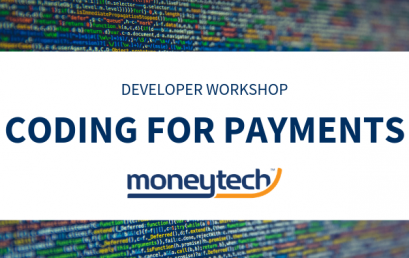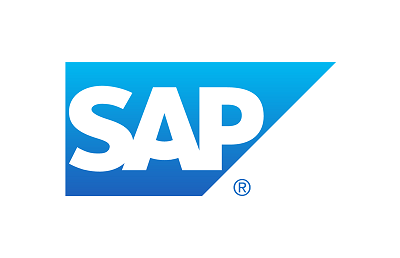Why to accept Bitcoin as a payment method
By Josh Lehman, Co-Founder of Digital Surge It has been more than a decade since Satoshi Nakamoto published the original Bitcoin whitepaper and single-handedly disrupted our financial landscape, changing the way we send and receive money. Today, Bitcoin is no longer a niche interest of a handful of early adopters but a legitimate payment method that’s accepted by some of the largest companies in the world, including Overstock, Microsoft, Namecheap, ExpressVPN, Shopify, and Newegg, just to name a few. Even though Bitcoin and the entire cryptocurrency space may seem confusing and difficult to get into, the fact is that you don’t need to be an expert to start accepting Bitcoin […]
Bitcoin vs. Ethereum: How are they different?
You may have heard of Ethereum. You’ve almost certainly heard of Bitcoin. You may even have heard of people making fortunes off of them. What you may not have heard is what exactly these two projects are. What Are Ethereum and Bitcoin? Ethereum and Bitcoin are two different versions of the same underlying concept called a blockchain token. Each was invented to work as a virtual currency. To understand how these two projects work and differ, you first have to understand the concepts of blockchain and virtual currency. What Is Blockchain? Blockchain is a form of digital data storage. In a blockchain, data are recorded on a series of digital […]
A faster, more efficient cryptocurrency
MIT researchers have developed a new cryptocurrency that drastically reduces the data users need to join the network and verify transactions — by up to 99 percent compared to today’s popular cryptocurrencies. This means a much more scalable network. Cryptocurrencies, such as the popular Bitcoin, are networks built on the blockchain, a financial ledger formatted in a sequence of individual blocks, each containing transaction data. These networks are decentralized, meaning there are no banks or organizations to manage funds and balances, so users join forces to store and verify the transactions. But decentralization leads to a scalability problem. To join a cryptocurrency, new users must download and store all transaction […]
Don’t miss out on Moneytech’s Coding For Payments workshop
Building tailored payments workflows is often difficult. But as people increasingly are expecting seamless movement of funds as part of their app/product/service experience, coding for payments is becoming more important. Simply adding a credit-card gateway might not be enough. This workshop is about exactly that: how do we build tailored API-driven payments workflows. From “receive” through “manage” to “pay”. The Moneytech workshop will cover the following: Non-technical overview of payment landscape and what NPP and Open Banking means High-level compliance considerations The “building blocks” of Australian payments – direct entry, BPAY, credit cards, NPP, virtual accounts, tokens etc – and things to think about for each of them Practical code […]
Xinja live with SAP Cloud for banking
Xinja today announced that it is live on SAP Cloud for Banking, after a rapid three-month implementation. While this is a global first for SAP, it also allows Xinja to accelerate development of innovative solutions for customers to make banking as easy and engaging as possible. Xinja has implemented SAP Cloud for Banking which comprises: SAP S/4HANA Finance; SAP Banking (Loans and Deposits), SAP Payments Engine, running on SAP Cloud and managed by SAP Cloud Application Services. SAP Cloud for Banking is an easy to configure, open platform, that is agile, collaborative and simple to integrate. It allows for rapid innovation cycles and leverages the power of SAP HANA to […]
Step-by-Step Guide: How to Create Your Own Cryptocurrency
Introduction Did you know, there are different forms of money? Not just real and counterfeit. Those categories were relevant in the 20th century. Now we have Cash money, digital money or money that can be accessed through online mediums, and plastic money which refers credit cards and debit cards. But in the last decade, the whole world has seen the emergence of a new form of money. It is definitely the cryptocurrency. Cryptocurrencies or virtual currencies are digital assets which can be used as a medium for exchange. Some notable instances of cryptocurrency are Bitcoin, Dogecoin, and Dentacoin. There are many more such cryptocurrencies available online. It is important to […]
What’s the difference between a private and public blockchain?
Blockchain has potential applications in many industries, from accounting to agriculture. It’s essentially a distributed ledger, which records transactions between every user in the chain. There are different types of blockchain: some are open and public and some are private and only accessible to people who are given permission to use them. A public blockchain is an open network. Anyone can download the protocol and read, write or participate in the network. A public blockchain is distributed and decentralised. Transactions are recorded as blocks and linked together to form a chain. Each new block must be timestamped and validated by all the computers connected to the network, known as nodes, […]
Navigating compliance in a borderless world
The regulatory landscape for financial services and fintech companies is rapidly changing. The industry continues to be subject to increasingly strict legal and regulatory requirements, and cybersecurity is top of mind for businesses. The cross-border money transfer space requires navigation of these complexities up and down the payments stack. Cross-border payments by definition require businesses to operate globally immediately, which introduces multinational regulatory requirements from the outset. The time, money, expertise and resources it takes to adhere to the multiple layers of regulation in both originating and receiving markets is an ongoing challenge for businesses. A recent study shows that 59% of companies in the Asia-Pacific region see increased regulation as […]









